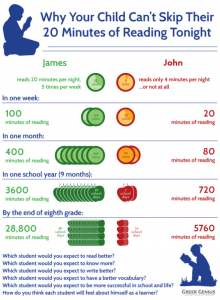Junior School – Barbreck

Parent Teacher Meetings 5 March 2020 1.30pm – 7.30pm
Parent-Teacher Meetings are a wonderful opportunity for parents/guardians to find out more about your daughter’s academic, emotional and social development. Teachers will share information about what your daughter is working on and any areas that may require a little more attention. It is also a wonderful opportunity to share information about your daughter, her strengths, interests, and areas of learning where you feel your daughter may benefit from more support. Teachers have a wealth of information and experience to share with you to better support your daughter at home.
You will have recently received details about the process for booking your Parent-Teacher Meetings. We look forward to seeing you on the Monday 5 March.
Open Morning 5 March 2020 10.00am
St Catherine’s first Open Morning will be held shortly on Thursday 5 March and is the perfect opportunity for enquiring families to meet staff and students and find out more about how their daughter could excel within the St Catherine’s community. If you know of anyone who is considering St Catherine’s School for their daughter, we encourage you to share the details with them.
Cognitive Load – What is it and why do we need to know about it?
The theory of cognitive load addresses the amount of information the brain can grasp at any one time. It explains the difference between processing new and stored information.
The theory is based on two beliefs. The first is that ‘there is a limit to how much new information the human brain can process at one time’ (NSW Centre for Education and Evaluation, 2017). This situation is familiar to us and occurs when we are in ‘information overload’, for example at orientation day. We often remember parts but not all of it. Researchers believe that our brain only handles about 4 chunks or bites of information at once (Cowan, 2001). The number might be less for younger children and has a huge impact on the capacity of students in class to process and retain large amounts of information; as well as how much information/instructions parents can provide at one time and expect a child to process or follow.
The explicit teaching model adopted by the Junior School accommodates the need for information to be delivered in chunks. Each of these chunks is then followed by an activity that assists in the processing of the chunk. An example of this would be to learn the body parts of an insect and then process by drawing and labelling it.
The second belief is that ‘there are no known limits to how much stored information a human brain can process at one time. (NSW Centre for Education and Evaluation, 2017). For students and teachers, the key is to process information and move it into stored information. The more information stored, the more information can be processed at any time to solve problems, ponder ideas, explore trains of thought and relate to new information.
Posters to challenge their thinking
Each week at assembly I share with students a poster presenting information that invites the girls to think, both creatively and critically on a particular topic of interest. This week, I invite you to also take the challenge and consider the following:
- How much reading should my daughter be doing every night?
- What can I do at home to help my daughter with schoolwork?




